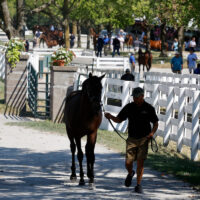Supply-chain woes and slower mail delivery mean rural residents should start shopping early for the holidays — and be prepared to spend more.
“Nearly every component of the traditional American Thanksgiving dinner, from the disposable aluminum turkey roasting pan to the coffee and pie, will cost more this year, according to agricultural economists, farmers and grocery executives,” Kim Severson reports for The New York Times. “Major food companies like Nestlé and Procter & Gamble have already warned consumers to brace for more price increases.”
Turkey “has gone up so much that the price per pound is likely to surpass $1.36, the benchmark set by the Department of Agriculture in 2015,” Dave Quinn reports for People. “Frozen birds between 8 and 16 pounds already cost 25 cents more per pound than they did a year ago, the organization said.”
The reasons for price increases vary: For turkey, the cost of feed corn has more than doubled. “Canned cranberry sauce will cost more because domestic steel plants have yet to catch up after pandemic shutdowns, and China is limiting steel production to reduce carbon emissions,” Severson reports. “As a result, steel prices have remained more than 200 percent higher than they were before the pandemic.”
Those supply-chain issues also drive scarcity. Grocers are short of many popular Thanksgiving dishes and ingredients; several interviewed for local news stories said beef and smaller turkeys are particularly low in supply, even in urban areas. They advised shoppers to place meat orders and buy non-perishable side-dish ingredients now (and consider putting in your Christmas order while you’re there).
Food isn’t the only thing in short supply, speaking of Christmas. Experts say some toys and other gifts could be hard to find. And in rural areas especially, slower mail service on top of the usual holiday bottlenecks means it’s a good idea to start shopping soon if you want gifts to arrive in time.
The Rural Blog is a publication of the Institute for Rural Journalism and Community Issues based at the University of Kentucky.






